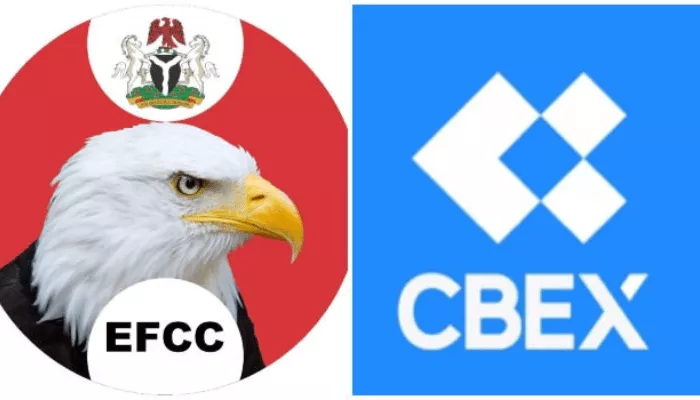In a significant move by the Central Bank of Nigeria (CBN), the country’s official exchange rate experienced a sharp depreciation, causing the Naira to lose nearly half of its value against the US dollar.
The exchange rate in the Investors and Exporters (I&E) window rose to N664.04 per dollar from N471.67 per dollar, reflecting the CBN’s measures to liberalize the market and eliminate multiple exchange rates. These changes allow banks to freely buy and sell foreign exchange based on a willing buyer and willing seller arrangement.
The move has received mixed reactions from analysts, who believe it will enhance foreign exchange inflows but could also lead to increased inflation and government debt.
Contents
Market Liberalization Measures:
In a statement titled “Operational Changes to the Foreign Exchange Market,” Dr. Angela Sere-Ejembi, Director of Financial Markets at the CBN, announced the new measures to be implemented. The key changes include:
1. Abolishing segmentation: All segments are now consolidated into the I&E window, while specific applications like medicals, school fees, BTA/PTA, and SMEs will still be processed through deposit money banks.
2. Reintroducing the “Willing Buyer, Willing Seller” model: Operations in the I&E window will follow the guidelines established in April 2017, allowing eligible transactions to access foreign exchange through this window.
3. Determining the operational rate for government-related transactions: The rate will be the weighted average rate of the preceding day’s executed transactions at the I&E window, calculated to two decimal places.
4. Proscribing trading limits on oversold FX positions: Short positions can be hedged with Over-The-Counter futures, while limits on overbought positions will be set to zero.
5. Reintroducing order-based two-way quotes: Bid-ask spread will be fixed at N1, and all transactions will be cleared by a Central Counter Party (CCP).
6. Reintroducing the Order Book: This measure ensures transparency of orders and facilitates seamless trade execution. The operational hours for trades will be from 9 am to 4 pm, Nigeria time. The RT200 Rebate Scheme and Naira4Dollar Remittance Scheme will be ceased from 30 June 2023.
Immediate Impact on Exchange Rates:
Data from the FMDQ revealed that the I&E window exchange rate closed at N664.04 per dollar, indicating a significant increase from the previous rate of N471.67 per dollar.
Conversely, the parallel market witnessed a minor appreciation, with the exchange rate dropping to N755 per dollar from N768 per dollar. Analysts interpret this depreciation in the official market as a shift towards a market-determined exchange rate based on supply and demand dynamics.
Impact on the Economy and Government Revenue:
Experts have predicted that the liberalization of the foreign exchange market will eliminate multiple exchange rates, reduce arbitrage and round-tripping, and enhance foreign exchange inflow into the country.
As a result, the Nigerian government’s revenue is expected to increase by approximately N4 trillion. However, analysts have also cautioned that these measures could lead to a rise in prices, increase government debt by about N12 trillion, and elevate the cost of servicing the nation’s debt.
Analysis of the Implications:
Investment banker Nnamdi Nwizu believes that the immediate impact of these measures will be an influx of foreign exchange into the economy, accompanied by a rise in the inflation rate. He expects the I&E rate to settle around N730 per dollar in the coming days, with the potential for the Naira to appreciate in the long term.
However, this could result in increased petrol prices, encouraging foreign investors to consider investing in Nigeria, as the elimination of multiple exchange rates and the implementation of a market-based exchange rate system increase transparency and reduce uncertainties.
Some analysts expressed concerns about the potential consequences of the new measures. One major concern is the potential impact on the prices of goods and services. With the depreciation of the naira, the cost of imported goods is likely to rise, leading to inflationary pressures. In particular, the prices of essential commodities such as gasoline may increase as the new exchange rate affects the cost of imports.
Additionally, the liberalization of the forex market is expected to increase government debt. The depreciation of the naira will lead to an increase in the naira value of external debt, which could result in a higher debt-to-GDP ratio.
This, in turn, may lead to an increase in the cost of servicing the debt. While the liberalization of the forex market is expected to boost government revenue through additional remittances, the overall impact on the fiscal situation remains uncertain.
The removal of trading limits on oversold foreign exchange positions and the introduction of order-based two-way quotes are aimed at enhancing transparency and reducing market distortions. By allowing a bid-ask spread of N1 and clearing transactions through a Central Counter Party (CCP), the new measures seek to promote fairer and more efficient trading in the forex market.
Furthermore, the reintroduction of the Order Book and the establishment of operational hours for trades provide a framework for the orderly and transparent execution of forex transactions.
These measures aim to prevent manipulative practices and ensure that market participants have access to accurate information regarding orders and trades.
The immediate impact of the new measures is expected to be an increase in the exchange rate at the Investors and Exporters (I&E) window. Analysts anticipate that the rate could rise significantly from the previous level of N475 per dollar, possibly reaching around N730 per dollar in the short term. This increase is expected to attract foreign investors who perceive the naira as previously overpriced, leading to increased foreign exchange inflows.
It is important to note that the success of the liberalization measures will depend on their effective implementation by the Central Bank of Nigeria (CBN). The CBN will need to manage the dynamics of the forex market, address the backlog of forex demands, and ensure sufficient forex supply to stabilize the exchange rate in the short term.
Additionally, the CBN should consider relaxing capital controls and administrative bottlenecks to prevent the parallel market rate from deviating significantly from the official market rate. This could include reviewing the list of items prohibited for forex access and removing the need for a certificate of capital importation. These actions would further reduce incentives for round-tripping and increase the transparency and efficiency of the forex market.
While there are potential risks and challenges associated with the liberalization of the forex market, proponents of the new measures believe that the benefits outweigh the drawbacks. They argue that a unified exchange rate regime will enhance liquidity, boost investor confidence, minimize discretion in forex allocation, and reduce opportunities for round-tripping and other fraudulent practices.
Moreover, increased transparency and efficiency in the forex market are expected to attract foreign direct investment (FDI) and improve Nigeria’s sovereign credit rating. The influx of FDI would contribute to economic growth, job creation, and capital flows into the country.
Overall, the liberalization of the forex market represents a significant step towards a more market-oriented exchange rate system in Nigeria. While there are potential challenges and uncertainties, the new measures have the potential to stimulate economic growth, attract foreign investment, and enhance the efficiency of the forex market.
The successful implementation of the reforms will require careful monitoring, effective policies, and proactive measures by the CBN to manage any potential risks and ensure a smooth transition to a unified exchange rate regime.










